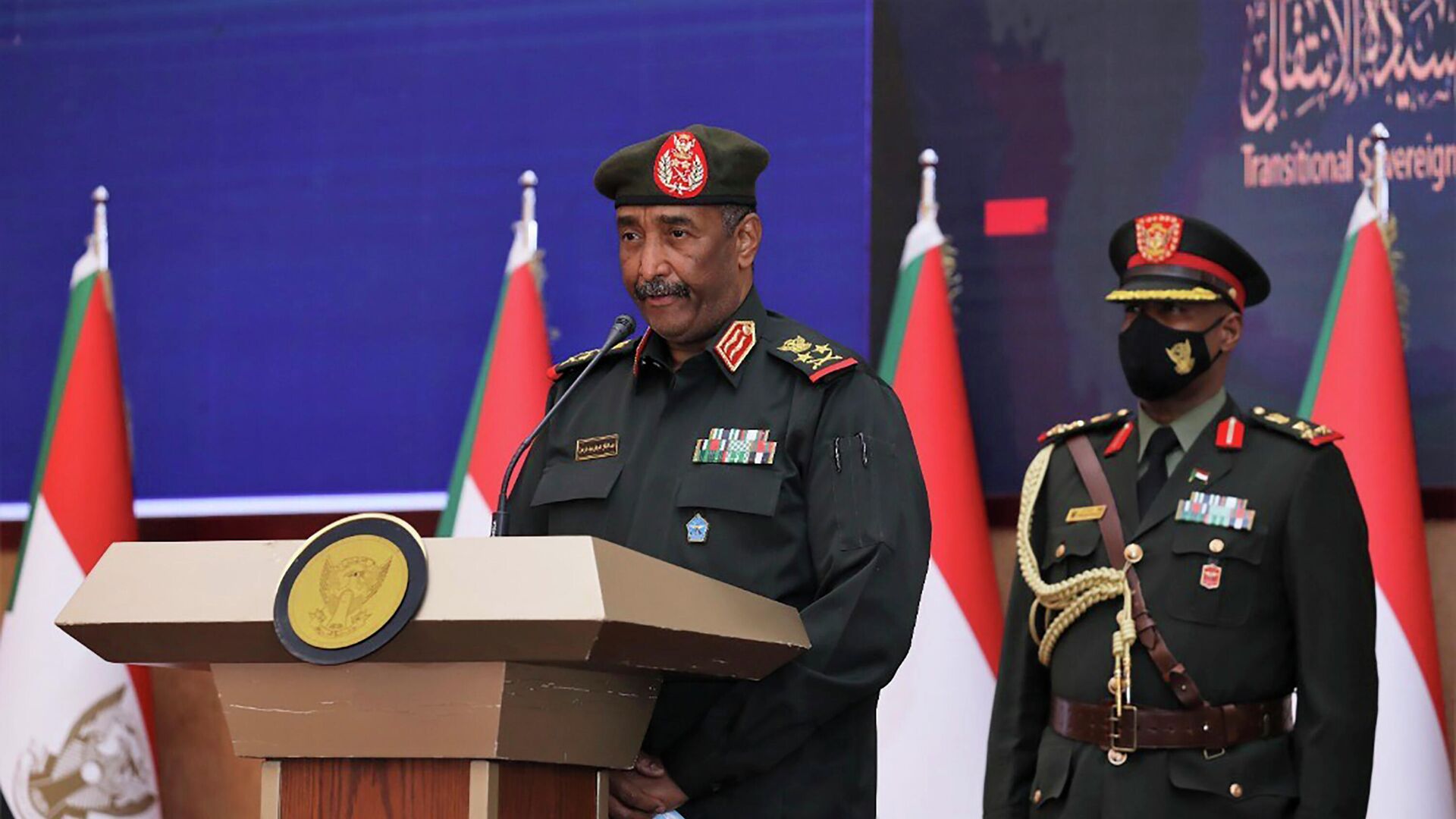https://sputnikglobe.com/20220923/khartoum-praises-russias-stance-on-sudan-eyeing-development-of-ties-with-moscow---leader-1101158748.html
Khartoum Praises Russia’s Stance on Sudan, Eyeing Development of Ties With Moscow - Leader
Khartoum Praises Russia’s Stance on Sudan, Eyeing Development of Ties With Moscow - Leader
Sputnik International
UNITED NATIONS (Sputnik) - Khartoum appreciates and commends Russia's stance toward Sudan and hopes for the development of relations with Moscow, Abdel-Fattah... 23.09.2022, Sputnik International
2022-09-23T23:50+0000
2022-09-23T23:50+0000
2022-11-23T11:38+0000
africa
sudan
russia
un general assembly
north africa
https://cdn1.img.sputnikglobe.com/img/07e6/02/0e/1093036965_0:0:3001:1688_1920x0_80_0_0_efbd3e87dd5aa7f34a9f08a5b0a6ab48.jpg
"Firstly, I am so pleased with this meeting with a friendly country that supported Sudan and is still by the side of Sudan. We appreciate and commend Russia’s stance toward Sudan. We hope our relations develop in a way that achieves the objectives," Burhan told the meeting with Russian Foreign Minister Sergey Lavrov on the sidelines of the 77th session of the UN General Assembly.Lavrov, for his part, told Burhan that Moscow was ready to support the normalization of the situation in Sudan.In October 2021, the Sudanese military, led by Gen. Burhan, overthrew the government, declaring a state of emergency and establishing a transitional sovereign council under his leadership. Subsequent protests forced Burhan to sign a pact stipulating the reinstatement of Prime Minister Abdalla Hamdok, releasing all political prisoners, holding elections in July 2023, and handing power to an elected civilian government. The political crisis persisted, however, and Hamdok stepped down on January 2.Weekly protests against military rule have continued in Sudan, resulting in dozens of deaths.
africa
sudan
russia
north africa
Sputnik International
feedback@sputniknews.com
+74956456601
MIA „Rossiya Segodnya“
2022
Sputnik International
feedback@sputniknews.com
+74956456601
MIA „Rossiya Segodnya“
News
en_EN
Sputnik International
feedback@sputniknews.com
+74956456601
MIA „Rossiya Segodnya“
Sputnik International
feedback@sputniknews.com
+74956456601
MIA „Rossiya Segodnya“
sudan, russia, un general assembly, north africa
sudan, russia, un general assembly, north africa
Khartoum Praises Russia’s Stance on Sudan, Eyeing Development of Ties With Moscow - Leader
23:50 GMT 23.09.2022 (Updated: 11:38 GMT 23.11.2022) UNITED NATIONS (Sputnik) - Khartoum appreciates and commends Russia's stance toward Sudan and hopes for the development of relations with Moscow, Abdel-Fattah Al Burhan, the President of the Transitional Government of Sudan, said on Friday.
"Firstly, I am so pleased with this meeting with a friendly country that supported Sudan and is still by the side of Sudan. We appreciate and commend Russia’s stance toward Sudan. We hope our relations develop in a way that achieves the objectives," Burhan told the meeting with Russian Foreign Minister Sergey Lavrov on the sidelines of the 77th session of the UN General Assembly.
Lavrov, for his part, told Burhan that Moscow was ready to support the normalization of the situation in Sudan.
"Once again, I appreciate this opportunity and would like to express our hope that the efforts of the government would fully normalize the situation, would succeed. We are ready to support this policy in the United Nations," Lavrov said.
In October 2021, the Sudanese military, led by Gen. Burhan, overthrew the government, declaring a state of emergency and establishing a transitional sovereign council under his leadership. Subsequent protests forced Burhan to sign a pact stipulating the reinstatement of Prime Minister Abdalla Hamdok, releasing all political prisoners, holding elections in July 2023, and handing power to an elected civilian government. The political crisis persisted, however, and Hamdok stepped down on January 2.
Weekly protests against military rule have continued in Sudan, resulting in dozens of deaths.


